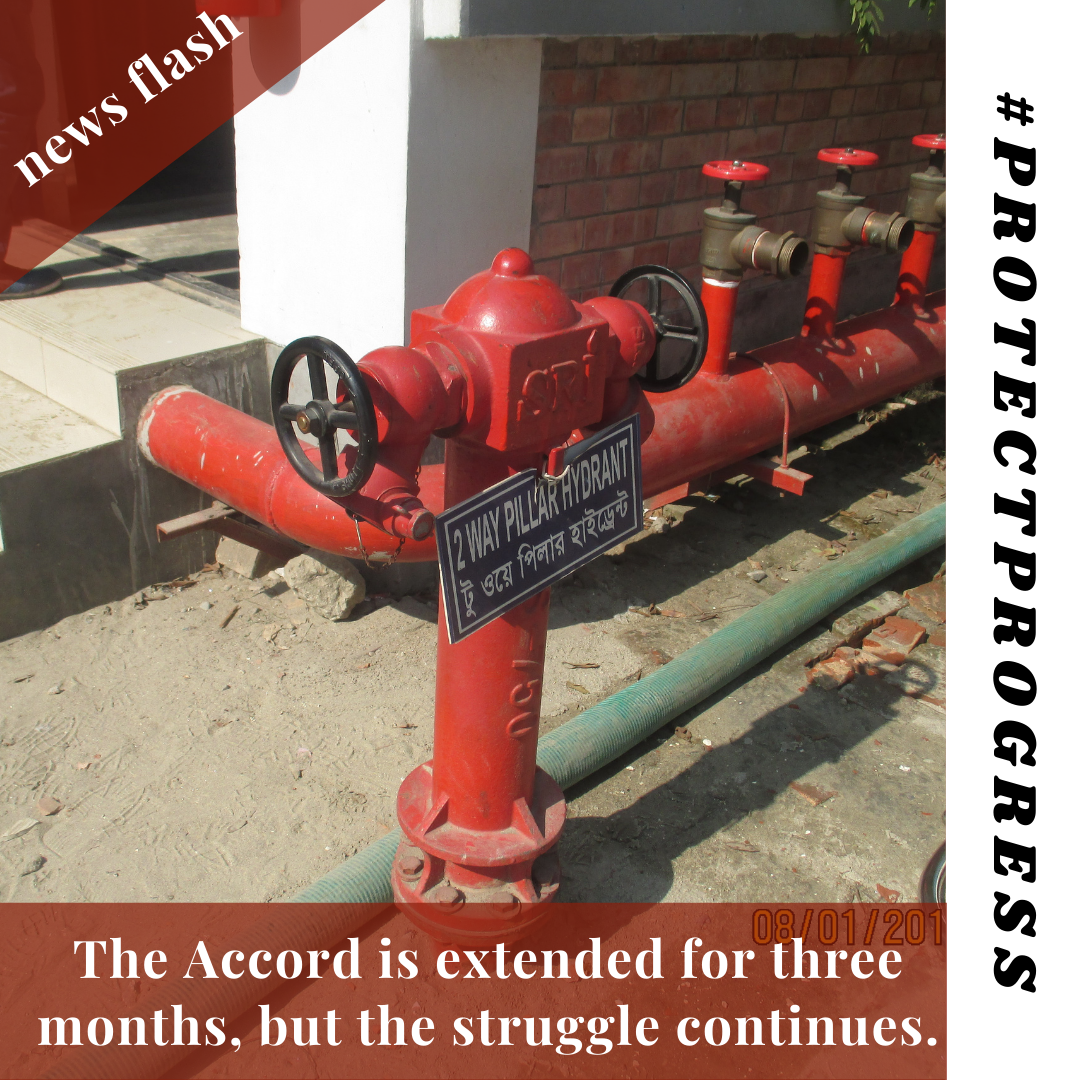
Bangladesh Accord : three months respite but the struggle is not over
Global unions and negotiating signatory companies have announced that they agreed upon a three month extension of the Accord on Fire and Building Safety in Bangladesh to allow for more time to conclude negotiations on a new binding safety agreement. Without such an agreement, apparel brands’ and factories’ efforts towards factory safety would cease to be legally binding and would lack union participation, thus reducing the task to make factories safer to an exercise in self-monitoring.
The witness signatories to the Accord – Clean Clothes Campaign, International Labor Rights Forum/Global Labor Justice, Maquila Solidarity Network, and Worker Rights Consortium – welcome the fact that the extension will continue to bind the Accord member brands to the same obligations as under the current Accord. The extension, however, is no more than a respite that maintains the status quo. The question at hand is still the same: will the Accord’s signatory brands agree to a new binding safety agreement that ensures the safety work in Bangladesh remains individually enforceable upon brands, keeps an independent secretariat in place that oversees the brands’ compliance, and allows for expansion to other countries? Without such an agreement, brands’ efforts in Bangladesh will amount to no more than the kind of self-monitoring practices that failed to prevent the Rana Plaza building collapse.
Kalpona Akter, president of the Bangladesh Garment and Industrial Workers Federation and founder of the Bangladesh Centre for Worker Solidarity, said: "The RMG Sustainability Council, which implements the safety work in Bangladesh, does not have the power to hold brands and retailers accountable to their promises. Only an international legally binding agreement will ensure that brands can be held accountable in court for the promises they made to make factories safe. As brands hold the power in the supply chain, our efforts in Bangladesh for workplace safety can only be successful if brands can be compelled to stick to their word."
The urgency of such a new agreement to maintain the Accord’s life-saving work in Bangladesh and extend the protection of this model to other countries was once more highlighted by a major fire in a garment factory in Pakistan this weekend. Fortunately, no one was injured, but such a fire in the middle of a shift could have had devastating consequences.
Brands and unions have three more months to agree on an international binding agreement for garment worker safety
The brief extension of the Accord was needed because of the negotiating brands’ reluctance to make good on their January 2020 commitment to negotiate a new binding agreement with the option to expand to other countries. After negotiations were delayed by the pandemic, the negotiating companies suddenly turned out to have backtracked from their commitments and only offered a watered-down version of the Accord. Fortunately, these brands do not represent all Accord members, and a growing number of brands are reaching out to the unions or publishing public statements indicating they will support a new agreement with the crucial elements proposed by the unions. These companies include Asos, Tchibo, Zeeman, KiK, and G-Star. The next three months will show whether other Accord signatories are willing to remain accountable for their commitments, rather than returning to pre-Rana Plaza practices.